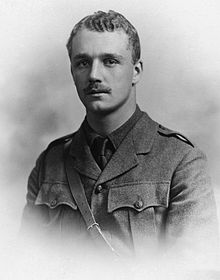
Albert Camus was a French philosopher, author, dramatist, journalist, world federalist, and political activist. He was the recipient of the 1957 Nobel Prize in Literature at the age of 44, the second-youngest recipient in history. His works include The Stranger, The Plague, The Myth of Sisyphus, The Fall and The Rebel.

Richard Aldington was an English writer and poet. He was an early associate of the Imagist movement. His 50-year writing career covered poetry, novels, criticism and biography. He edited The Egoist, a literary journal, and wrote for The Times Literary Supplement, Vogue, The Criterion, and Poetry. His biography, Wellington (1946), won him the James Tait Black Memorial Prize.

Louis Émile Clément Georges Bernanos was a French author, and a soldier in World War I. A Catholic with monarchist leanings, he was critical of elitist thought and was opposed to what he identified as defeatism. He believed this had led to France's defeat and eventual occupation by Germany in 1940 during World War II. His two best-known novels Sous le soleil de Satan (1926) and the Journal d'un curé de campagne (1936) both revolve around a parish priest who combats evil and despair in the world. Most of his novels have been translated into English and frequently published in both Great Britain and the United States.
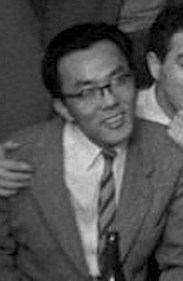
Shūsaku Endō was a Japanese author who wrote from the perspective of a Japanese Catholic. Internationally, he is known for his 1966 historical fiction novel Silence, which was adapted into a 2016 film of the same name by director Martin Scorsese. He was the laureate of several prestigious literary accolades, including the Akutagawa Prize and the Order of Culture, and was inducted into the Roman Catholic Order of St. Sylvester by Pope Paul VI.

Lawrence Hill is a Canadian novelist, essayist, and memoirist. He is known for his 2007 novel The Book of Negroes, inspired by the Black Loyalists given freedom and resettled in Nova Scotia by the British after the American Revolutionary War, and his 2001 memoir Black Berry, Sweet Juice: On Being Black and White in Canada. The Book of Negroes was adapted for a TV mini-series produced in 2015. He was selected in 2013 for the Massey Lectures: he drew from his non-fiction book Blood: The Stuff of Life, published that year. His ten books include other non-fiction and fictional works, and some have been translated into other languages and published in numerous other countries.
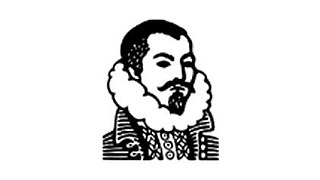
The Bodley Head is an English book publishing imprint of Penguin Random House. Founded in 1887 by John Lane and Elkin Mathews, The Bodley Head existed as an independent entity or as part of multiple consortiums until it was acquired by Random House in 1987 alongside sister companies Jonathan Cape and Chatto & Windus. Random House used The Bodley Head as a children's book imprint until April 2008, when it was repositioned as an adult non-fiction imprint within the Vintage Books division.
Donald Culross Peattie was an American botanist, naturalist and author. He was described by Joseph Wood Krutch as "perhaps the most widely read of all contemporary American nature writers" during his heyday. His brother, Roderick Peattie (1891–1955), was a geographer and a noted author in his own right. Some have said that Peattie's views on race may be considered regressive, but that expressions of these views are "mercifully brief and hardly malicious".

Kafū Nagai was a Japanese writer, editor and translator. His works like Geisha in Rivalry and A Strange Tale from East of the River are noted for their depictions of life of the demimonde in early 20th-century Tokyo.

Walter Sherard Vines (1890–1974), known as Sherard Vines, was an English author and academic. He began publishing poetry in the 1910s, then in the 1920s spent five years teaching at Keio University in Tokyo, Japan. While in Japan and after his return to England, where he took up a post at University College Hull, he continued to publish poetry, fiction and criticism. His works include The Course of English Classicism from the Tudor to Victorian Age (1930), a study of classicism in British art; Yofuku, or, Japan in Trousers (1931), a travel book about his experiences in Japan which was critical of aspects of Japanese culture; and A Hundred Years of English Literature (1959), a survey of the literature of Britain, the British Empire and the United States.

Isabelle Wilhelmine Marie Eberhardt was a Swiss explorer and author. As a teenager, Eberhardt, educated in Switzerland by her father, published short stories under a male pseudonym. She became interested in North Africa, and was considered a proficient writer on the subject despite learning about the region only through correspondence. After an invitation from photographer Louis David, Eberhardt moved to Algeria in May 1897. She dressed as a man and converted to Islam, eventually adopting the name Si Mahmoud Saadi. Eberhardt's unorthodox behaviour made her an outcast among European settlers in Algeria and the French administration.

Marquis de Morès et de Montemaggiore was a French duelist, frontier ranchman in the Badlands of Dakota Territory during the final years of the American Old West era, a railroad pioneer in Vietnam, and antisemitic politician in his native France.

Paul Mus (1902–1969) was a French writer and scholar. His studies focused on Vietnam and other Southeast Asian cultures.
Pierre Guyotat was a French literary avant-garde writer who wrote fiction, non-fiction, and plays. He is best known for his 1967 novel Tombeau pour cinq cent mille soldats, about his experiences in the Algerian War, and his 1970 novel Eden, Eden, Eden, which was banned for its explicit content. Many of his novels are set in imaginary north African war zones. Idiotie won the Prix Medicis.

P. J. Kavanagh FRSL was an English poet, lecturer, actor, broadcaster and columnist. His father was the ITMA scriptwriter Ted Kavanagh.

George Reid Millar DSO MC was a Scottish journalist, soldier, author and farmer. He was awarded the Military Cross (MC) in early 1944 for escaping from Germany while a prisoner of war and making it back to England, which he wrote about in his 1946 book Horned Pigeon.
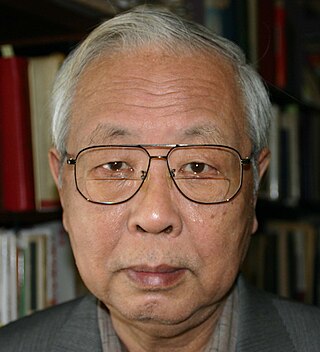
Ikuhiko Hata is a Japanese historian. He earned his PhD at the University of Tokyo and has taught history at several universities. He is the author of a number of influential and well-received scholarly works, particularly on topics related to Japan's role in the Second Sino-Japanese War and World War II.
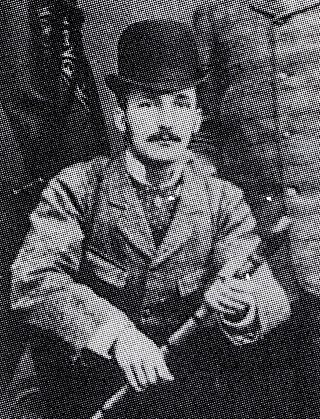
John Edward Courtenay Bodley was an English civil servant, known for his writings on France.

Jean-Noël Pancrazi is a French author.

Vladimir Solomonovich Pozner was a French writer and translator of Russian-Jewish descent. His family fled the pogroms to take up residence in France. Pozner expanded on his inherited cultural socialism to associate both in writing and politics with anti-fascist and communist groups in the inter-war period. His writing was important because he made friends with internationally renowned exponents of hardline communism, while rejecting Soviet oppression.
Norman George Denny, also known under the pseudonyms Norman Dale and Bruce Norman, was an English writer and translator.
